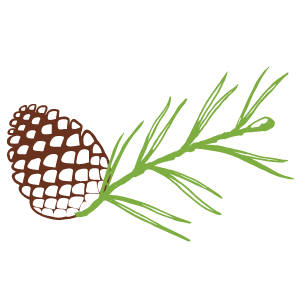
Our economy traditionally depends on the extraction of resources from the earth for goods and services, which in turn end up as waste in our landfills. Most people don’t see their local landfills, resulting in the “out of sight, out of mind” mentality. However, the finite nature of landfills in conjunction with a consumer culture leads to an unsustainable model. This linear path has dominated the world economy for a long time, and many agree that it is time for a change.
Experts agree that adopting a “closed loop,” or circular economy is a stronger, more sustainable option. According to the Ellen MacArthur Foundation, a closed loop system means that resources are used and reused in a cycle that turns waste back into future products that can re-enter the supply chain. This system eliminates the need to constantly extract resources and reduces our reliance on dumping garbage into landfills.
While converting the entire economy into this eco-friendly system will require some serious redesign, each individual also has the power to participate in the closed loop system of composting. Composting is the biological process of naturally accelerating decomposition by turning organics like food and yard waste into a nutrient-rich soil amendment that can then fertilize new, healthy plant growth. It is a closed loop system since our food and green waste returns to the ground it came from, helping to create new plant growth. Composting operations exist all over, and can even be done on a micro level at home.
Here’s how to get involved with the closed loop system of compost:
- Find a compost drop site near you. Vail Honeywagon operates the commercial compost facility in Eagle County, and is a great option for those who want to support our local closed loop economy. Residential drop site members receive compost training and a 5 gallon bucket of waste per week, which can be dropped at one of their easily accessible drop sites throughout the county, including in Vail, Avon, Singletree, Eagle and Minturn. Members also receive vouchers for finished compost in the spring. Check out their website, vailhoneywagon.com, for more information and to sign up.
- Compost at your business. Vail Honeywagon and EverGreen Zero Waste also have options for commercial compost customers. If you are a business in Eagle County, signing up for compost services are a great way to help the community reach its climate goals. Businesses that compost can often reduce their trash pickups to offset the cost of compost services, and allowing employees to bring in their compost is a great sustainability benefit.
- Start your own backyard compost. If there are no facilities near you, it is fairly simple to start your own pile right in your backyard (or even apartment!). Consider how much space you have and how much food waste you produce, then decide which system you want to choose. For more detailed information on composting, visit walkingmountains.org/composting.
- Use compost on your lawns and gardens. The finished compost product is a nutrient rich soil amendment that can kick start plant growth when mixed in with soil. It can help deliver nutrients to plants, as well improve water retention in the soil. And using compost made locally in our unique climate and environment is an extra bonus.
Christina Alexakos and Lily Pegg are Sustainability Interns at Walking Mountains Science Center.







